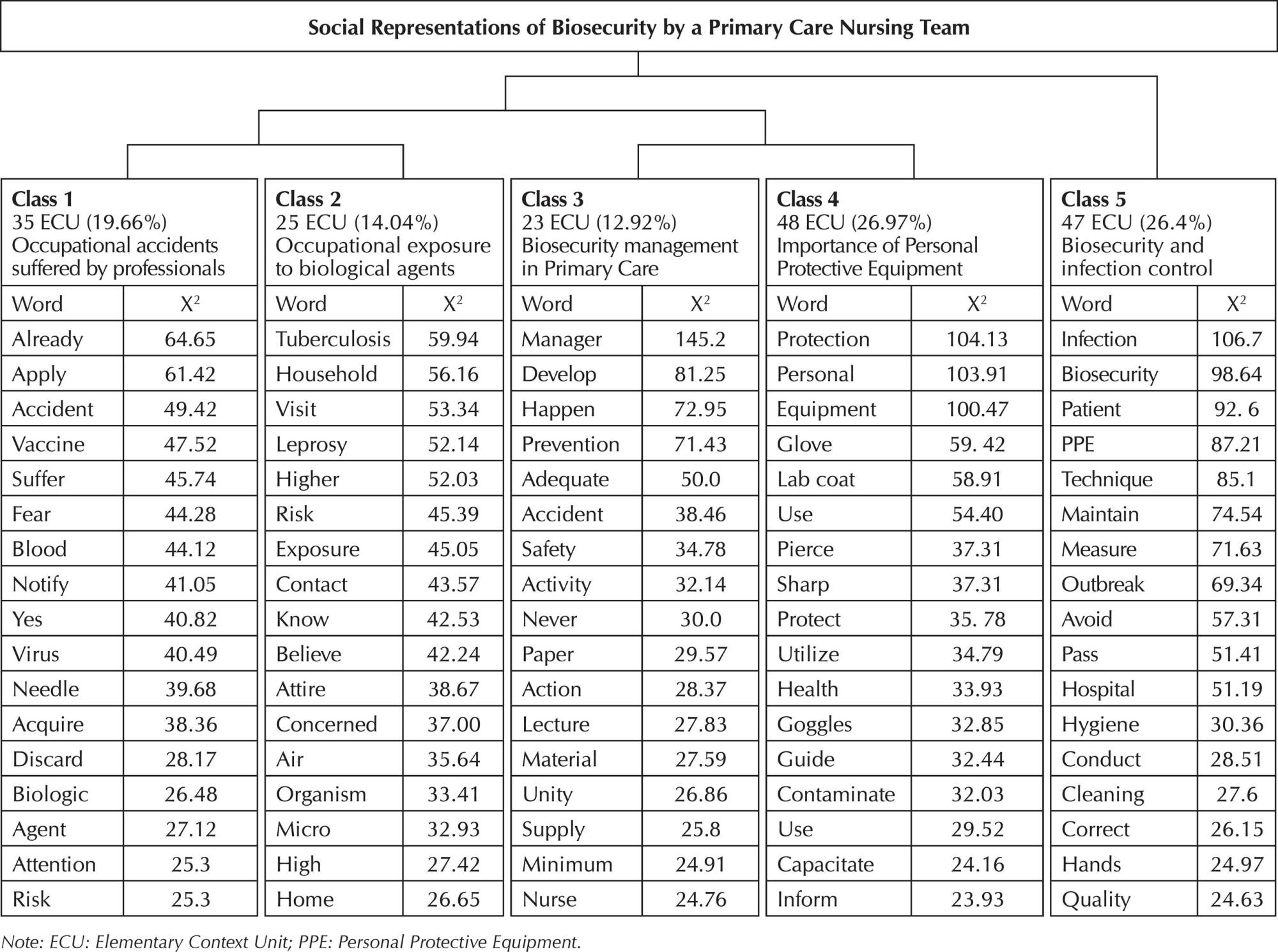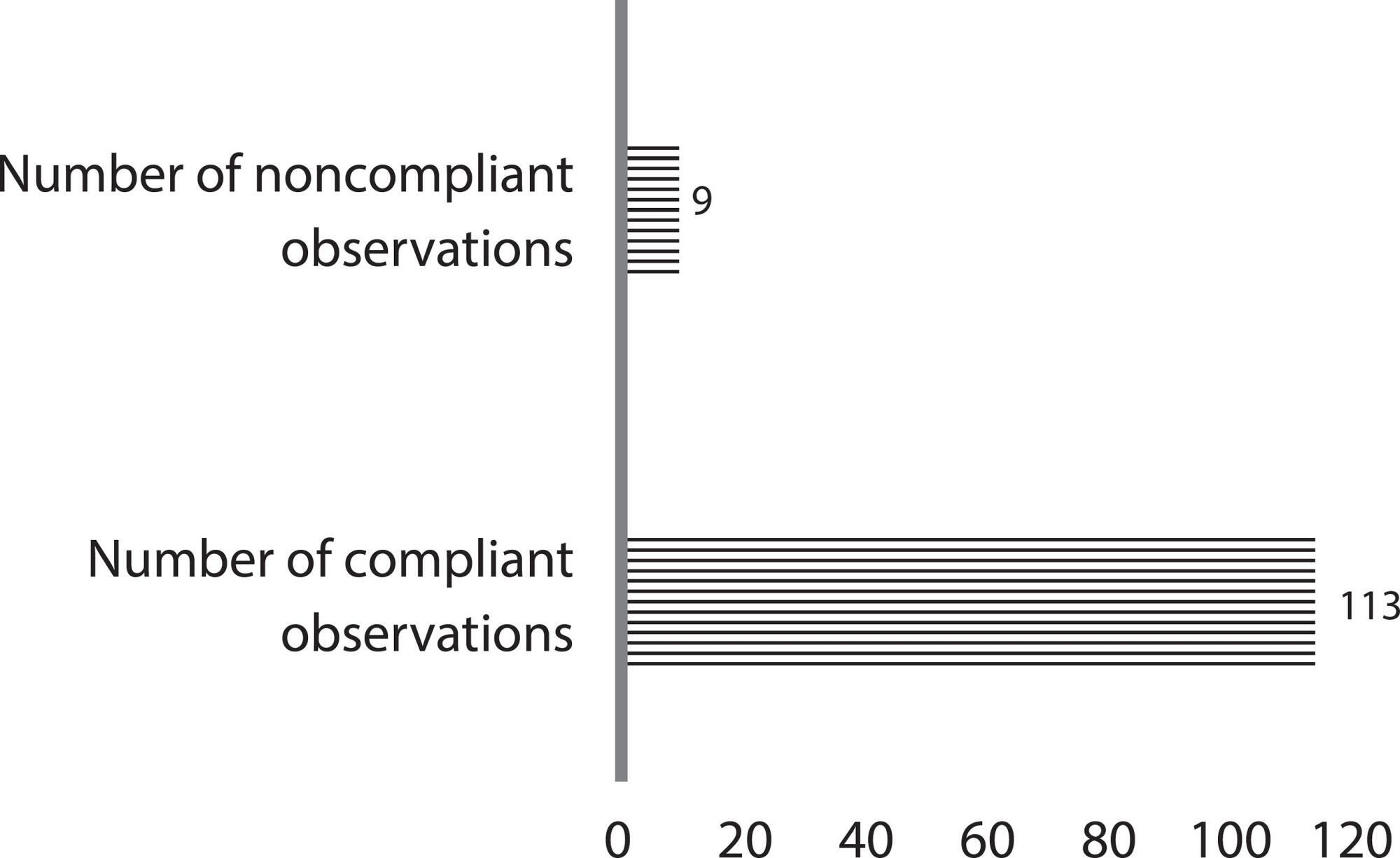-
RESEARCH
Occupational health nurses: interdisciplinary experience in occupational health
Revista Brasileira de Enfermagem. 2016;69(5):897-905
01-01-2016
Abstract
RESEARCHOccupational health nurses: interdisciplinary experience in occupational health
Revista Brasileira de Enfermagem. 2016;69(5):897-905
01-01-2016DOI 10.1590/0034-7167-2015-0113
Views0ABSTRACT
Objective:
to analyze the relationship of occupational health nurses with the other members of the Specialized Service in Safety Engineering and Occupational Medicine (SESMT) and characterize joint actions of these professionals in occupational health.
Method:
qualitative, exploratory, and descriptive study with 34 professionals of seven companies from the South Macroregion of the state of Rio Grande do Sul. Interviews and observations were conducted for content analysis of Bardin.
Results:
the SESMTs are multidisciplinary and intersectoral workers. Nurses have working relations of an interpersonal, technical/legal, and management of logistics/organizational nature, influenced by the technical division of work and by the division in the work environment of the staff, which distances areas, generates conflicts, and fragments the actions of the service.
Conclusion:
SESMT faces challenges to develop a work befitting their legal objectives, once staff and companies need to understand the importance of interdisciplinarity for the success of actions on the workers’ health and safety.
Keywords:InterrelationshipOccupational Health NursingOccupational Health ServicesWorkWorkers' HealthSee more -
RESEARCH
Translation and adaptation of a pediatric early warning score
Revista Brasileira de Enfermagem. 2016;69(5):888-896
01-01-2016
Abstract
RESEARCHTranslation and adaptation of a pediatric early warning score
Revista Brasileira de Enfermagem. 2016;69(5):888-896
01-01-2016DOI 10.1590/0034-7167-2015-0096
Views0See moreABSTRACT
Objective:
to translate and adapt the BPEWS for the Portuguese language, with the purpose of verifying its applicability in the Brazilian context studied.
Method:
methodological study guided by international and nationally accepted recommendations for translation and adaptation of health measurement instruments. Stages of conceptual, item, semantic, operational and pre-test equivalence are described for obtaining the BPEWS Portuguese version to be used in Brazil.
Results:
the BPEWS version translated and adapted for Brazilian Portuguese (BPEWS-Br) identified, in the pilot study, that 26.6% of children were presenting warning signs for clinical deterioration.
Conclusion:
the BPEWS-Br seems to be applicable for the context studied, and its use might help nurses in the recognition and documentation of warning signs for clinical deterioration in hospitalized Brazilian children.
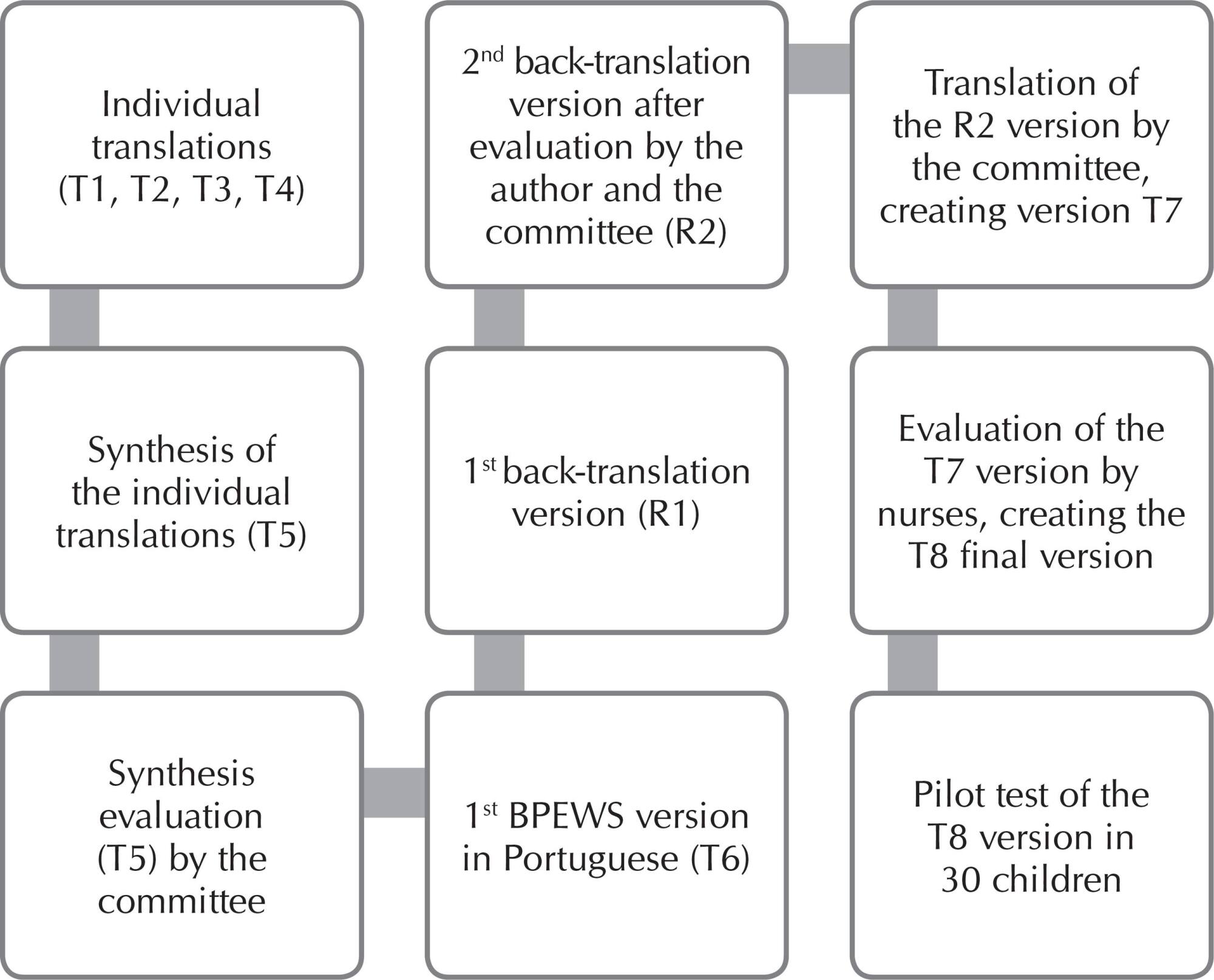
-
RESEARCH
Validation of the Nursing Activities Score in Portuguese intensive care units
Revista Brasileira de Enfermagem. 2016;69(5):881-887
01-01-2016
Abstract
RESEARCHValidation of the Nursing Activities Score in Portuguese intensive care units
Revista Brasileira de Enfermagem. 2016;69(5):881-887
01-01-2016DOI 10.1590/0034-7167-2016-0147
Views0See moreABSTRACT
Objective:
to describe the process of adaptation and validation of the Nursing Activities Score to the Portuguese context.
Method:
this was a pilot study of adaptation and validation of the Nursing Activities Score with a sample consisting of 67 patients hospitalized in the intensive care units of three Portuguese hospitals. The construct validity was assessed through factor analysis procedures and the internal consistency of the items was measured through the Cronbach’s alpha coefficient.
Results:
a mean workload value of 63.04% (SD = 14.25; Median = 61.30) was obtained. Psychometric data revealed a Cronbach’s alpha of 0.71 in the total scale, indicating an acceptable accuracy. Confirmatory factor analysis suggested an appropriate adjustment between the model and the data (χ2(199) = 214.5, p = 0.214; CFI = 0.95; RMSA = 0.035).
Conclusion:
in the present study, the Portuguese version of the Nursing Activities Score was found to be a valid instrument, enabling a safe assessment of the workload of nurses.
-
RESEARCH
Managing educational practices for qualified nursing care in cardiology
Revista Brasileira de Enfermagem. 2016;69(5):872-880
01-01-2016
Abstract
RESEARCHManaging educational practices for qualified nursing care in cardiology
Revista Brasileira de Enfermagem. 2016;69(5):872-880
01-01-2016DOI 10.1590/0034-7167-2015-0032
Views0See moreABSTRACT
Objective:
to understand significances attributed by nurses who manage nursing care to the individual affected by cardiovascular disease to relations, interactions and associations of the educational practices in a cardiovascular reference hospital. To elaborate a theoretical explanatory model based on significances attributed in the light of the complex thinking.
Method:
qualitative study, which used Theory Based on Data (TBD) as methodological reference. Twenty-two professionals of nursing participated in the study.
Results:
the results indicate need of professional qualification to ensure the safety of patients, institutional support for the realization of educational practices, attitude of openness and availability of dialogue of the health professionals and other institutional conformations for the workers’ development.
Conclusion:
the study presents a new space for the nurse’s action that can be used to qualify and optimize the nursing practice, as it provides visibility to management and care in health institutions.
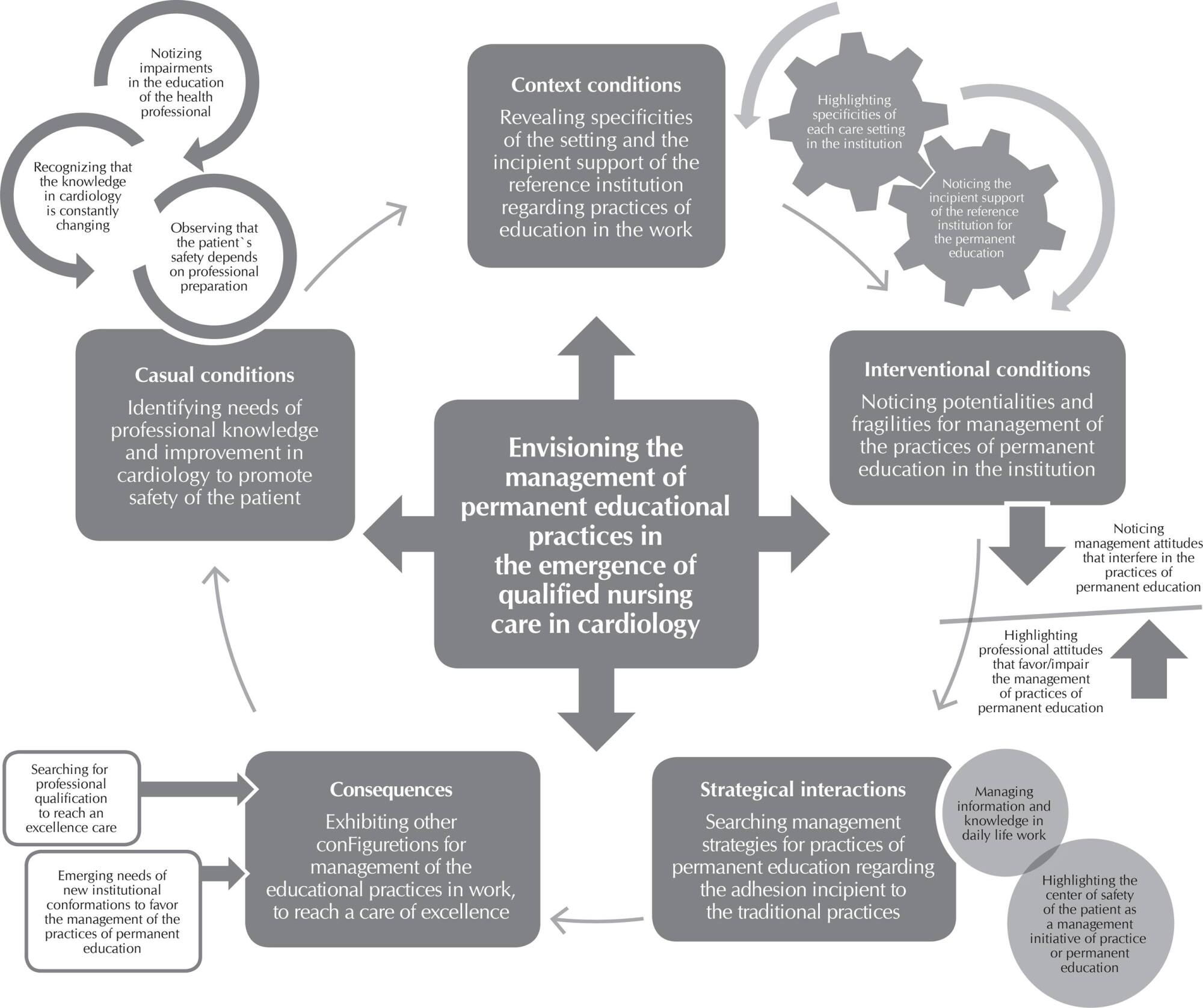
-
RESEARCH
Clinical validation of nursing diagnosis “Willingness for improved infant development”
Revista Brasileira de Enfermagem. 2016;69(5):855-863
01-01-2016
Abstract
RESEARCHClinical validation of nursing diagnosis “Willingness for improved infant development”
Revista Brasileira de Enfermagem. 2016;69(5):855-863
01-01-2016DOI 10.1590/0034-7167-2015-0131
Views0See moreABSTRACT
Objective:
to conduct the clinical validation of nursing diagnosis “Willingness for improved infant development”.
Method:
a cross-sectional study, conducted in a Centro de Saúde da Família (Family Health Care center), with 45 healthy breastfed infants. The instrument for collecting the data was prepared based on the literature and validated by nurses. It contained the following variables: sociodemographic, gestational, and obstetrical variables; breastfed infant’s nutritional profile; evaluation of the defining characteristics of the proposed nursing diagnosis.
Results:
all the defining characteristics were found to have high sensitivity values (>90%), positive predictive values (>65%), negative predictive values (>66%); however, low specificity values (<32%). In this study, the defining characteristics we found to have estimates (>0.50) within the ROC curve, which provides good sensitivity and specificity.
Conclusion:
this study verified the structural elements of the proposed nursing diagnosis to be relevant in the clinical context, which justifies the need for its being employed with children, taking into account its contribution to improving nursing care.
-
RESEARCH
Oral drugs at a hospital unit: adequacy for use via enteral feeding tubes
Revista Brasileira de Enfermagem. 2016;69(5):847-854
01-01-2016
Abstract
RESEARCHOral drugs at a hospital unit: adequacy for use via enteral feeding tubes
Revista Brasileira de Enfermagem. 2016;69(5):847-854
01-01-2016DOI 10.1590/0034-7167-2015-0081
Views0See moreABSTRACT
Objective:
to describe the profile of standardized oral drugs at a hospital unit and assess their adequacy for use via enteral feeding tubes, according to recommendations from the literature.
Method:
descriptive study, with data on drugs collected from the Pharmacy Service Dispensing System. Specific recommendations for the use of these drugs via enteral feeding tubes were found after searches in literary databases, books, manuals, guidelines and package insert collections.
Results:
among the 236 dispensed oral drugs, 86% were in solid form; of those, 32 were “non-crushable”, with the liquid form available at the institution. Twenty-eight drugs with potential interactions with enteral nutrition were identified. Sixty percent of those presented specific recommendations on their administration via enteral feeding tube.
Conclusion:
the joint participation of multidisciplinary nutritional therapy and care teams and the implementation of programs for continuous training are suggested strategies for the prevention of potential problems in the administration of drugs in the hospital setting.
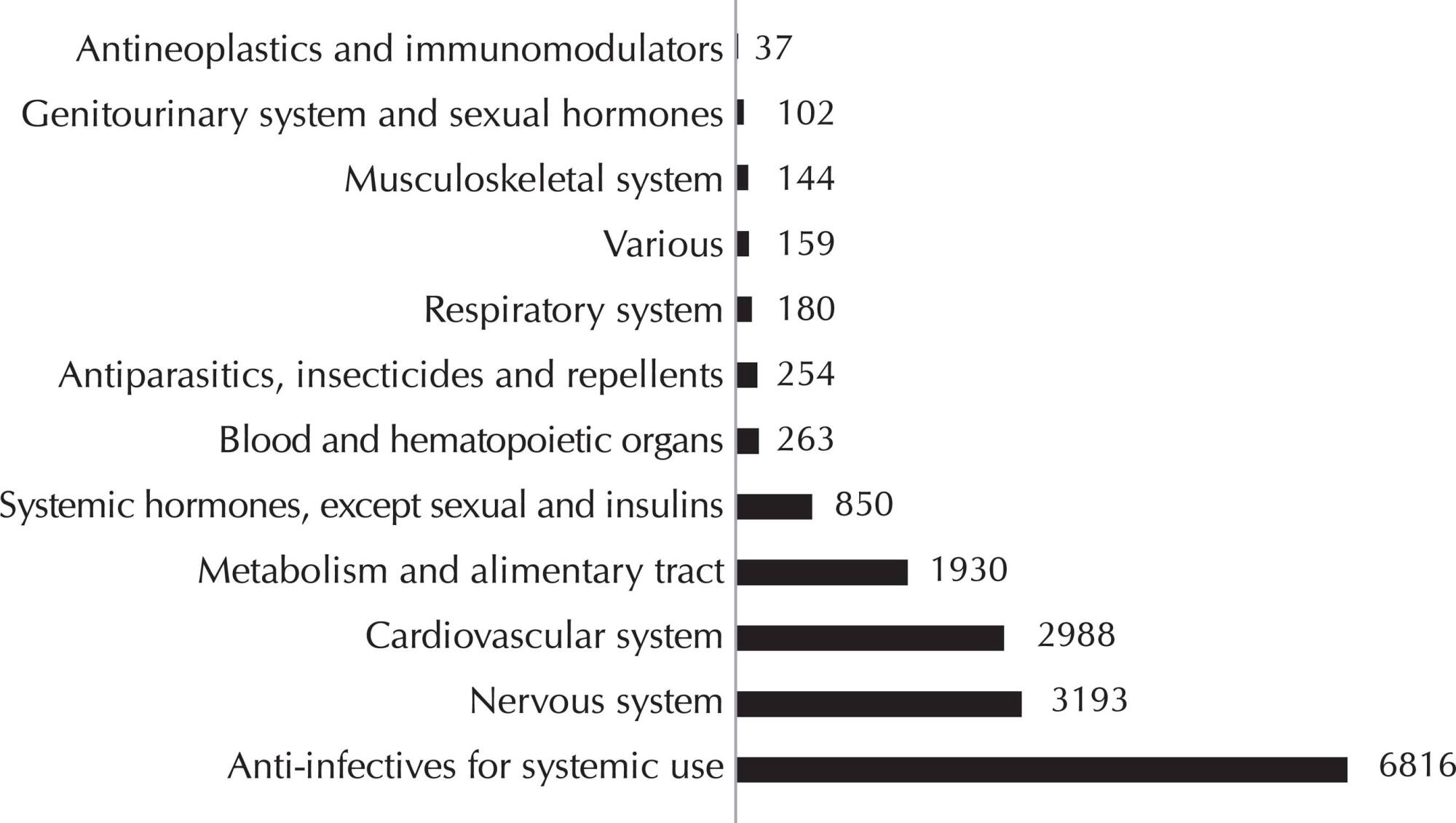
-
RESEARCH
Nurses’ performance on indigenous and African-Brazilian health care practices
Revista Brasileira de Enfermagem. 2016;69(5):840-846
01-01-2016
Abstract
RESEARCHNurses’ performance on indigenous and African-Brazilian health care practices
Revista Brasileira de Enfermagem. 2016;69(5):840-846
01-01-2016DOI 10.1590/0034-7167.2016690504
Views0See moreABSTRACT
Objective:
to analyze the performance of nurses from the Estratégia Saúde da Família (Family Health Strategy) on health care practices rooted in African and Indigenous cultures.
Methods:
Thematic Oral History was used and interviews were conducted with seven participants, who worked with Primary Health Care in Northeastern Brazil. The analysis was based on Leininger’s Theory of Cultural Care and the intercultural concept of human rights, among others.
Results:
nurses are unaware of the religious and historical context of the ethnic groups cared for and do not appreciate their self-care practices in areas with a predominance of African and indigenous cultures. These practices coexist with the hegemonic biomedical model.
Conclusion:
the debate on cultural competence in the context of professional qualification and exercise is required, aiming to promote the nursing work in the perspective of diversity and comprehensiveness of health care.
-
Contents related to nursing professionals during the COVID-19 pandemic on the Youtube™ platform
Revista Brasileira de Enfermagem. 2021;74:e20200581
02-05-2021
Abstract
Contents related to nursing professionals during the COVID-19 pandemic on the Youtube™ platform
Revista Brasileira de Enfermagem. 2021;74:e20200581
02-05-2021DOI 10.1590/0034-7167-2020-0581
Views0See moreABSTRACT
Objective:
to characterize the content of Youtube™ videos related to nursing professionals during the COVID-19 pandemic.
Method:
a qualitative study that examined 47 videos on Youtube™ posted between 11/03 and 11/04 2020, which were subjected to thematic analysis.
Results:
four categories emerged: “the role of nurses in care production during the pandemic”, which addresses the management of services and individual care; “Overview of the pandemic from the perspective of nurses in different countries”, presenting experiences and encouraging physical distance; “Tributes and motivation to mobilize the category”, in addition to targeted tributes, calls for nurses to claim their rights; “Criticisms and demands to improve working conditions”, which highlights the insecurity of care provision settings.
Final considerations:
nursing work conditions in different countries, recognition of the importance of professionals during the pandemic, and claims of the category to improve working conditions were the main content found on Youtube™.
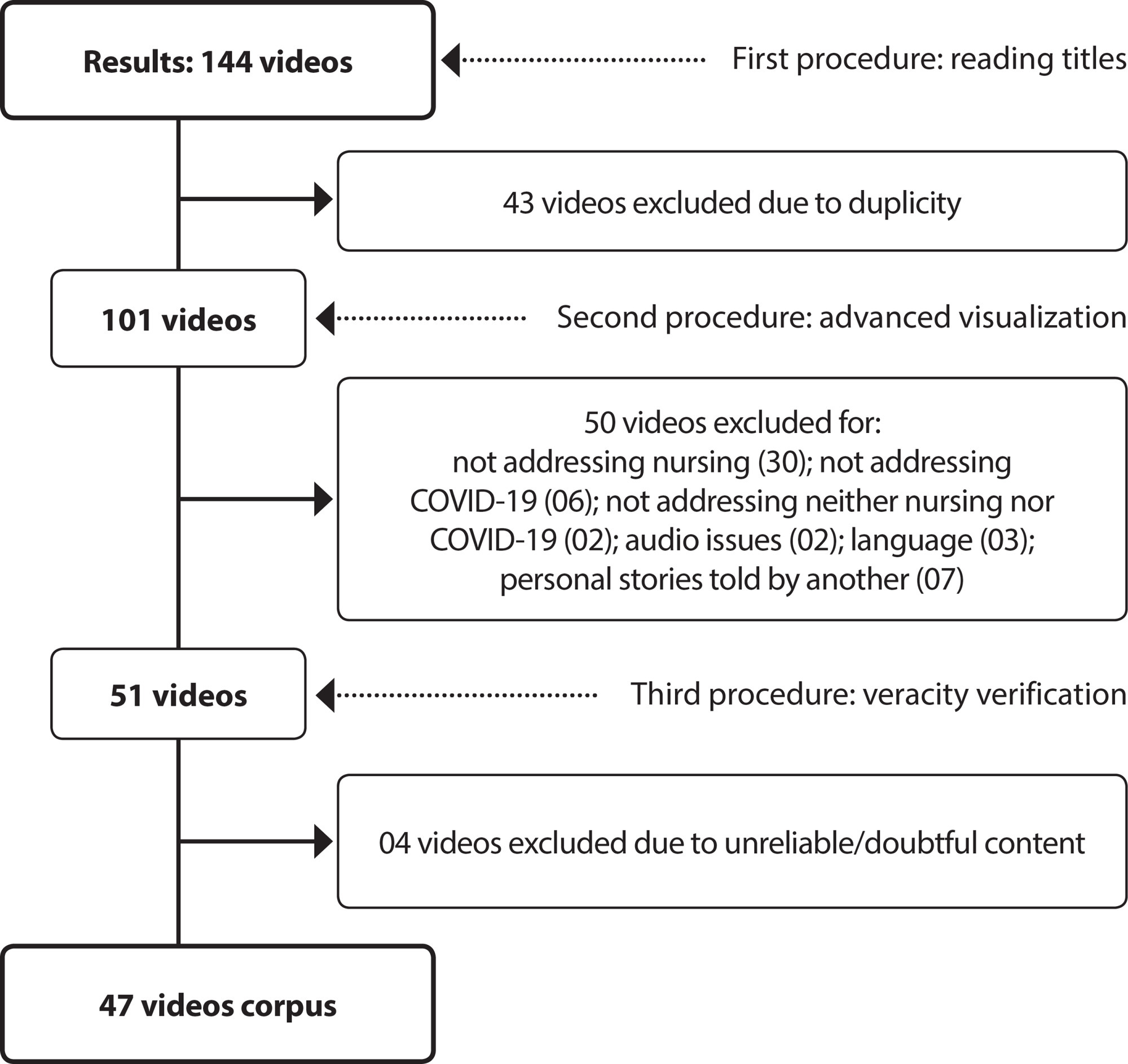
-
REVIEW
Prevention and control measures for neonatal COVID-19 infection: a scoping review
Revista Brasileira de Enfermagem. 2020;73:e20200467
07-13-2020
Abstract
REVIEWPrevention and control measures for neonatal COVID-19 infection: a scoping review
Revista Brasileira de Enfermagem. 2020;73:e20200467
07-13-2020DOI 10.1590/0034-7167-2020-0467
Views0See moreABSTRACT
Objective:
to identify with the literature the measures to prevent and control neonatal infection by COVID-19.
Methods:
a scope review carried out by searching for studies in databases and institutional health websites. The final sample was 25 articles.
Results:
among the main measures are the use of masks by suspected or infected people in contact with healthy newborns, hand hygiene before and after each care and feeding as well as the tools used for milking. It is indispensable to use personal protective equipment by health professionals in neonatology services to maintain a private room for infected newborns or to use physical barriers. Early diagnosis and timely case management is essential to reduce virus transmissibility.
Conclusions:
the research contributed to elucidate health and nursing actions in preventing and controlling neonatal infection by COVID-19.

-
REVIEW
Prevention and conduct against the Extravasation of antineoplastic chemotherapy: a scoping review
Revista Brasileira de Enfermagem. 2020;73(4):e20190008
06-17-2020
Abstract
REVIEWPrevention and conduct against the Extravasation of antineoplastic chemotherapy: a scoping review
Revista Brasileira de Enfermagem. 2020;73(4):e20190008
06-17-2020DOI 10.1590/0034-7167-2019-0008
Views0ABSTRACT
Objectives:
to identify and synthesize scientific evidence on prevention and management of extravasation of antineoplastic agents in adult patients by nurses.
Methods:
scoping review, according to Joanna Briggs Institute and PRISMA-ScR. Research was conducted in five electronic databases, Cochrane Library and eight catalogs of theses and dissertations. Data collection occurred from April to July 2018, with no time limit. The extracted data were analyzed and synthesized in a narrative way.
Results:
a total of 3,110 records were retrieved and 18 studies were kept for review. Most publications (66.6%) had a qualitative approach and addressed both aspects, i.e., prevention and management of extravasation of chemotherapy in adult patients.
Conclusions:
the implementation of protocols based on scientific evidence on prevention and management of extravasation of antineoplastic agents is paramount in order to provide patient safety and support to the nursing staff.
Keywords:Antineoplastic AgentsCombined ChemotherapyExtravasation of Therapeutic and Diagnostic MaterialsNursing CareOncologySee more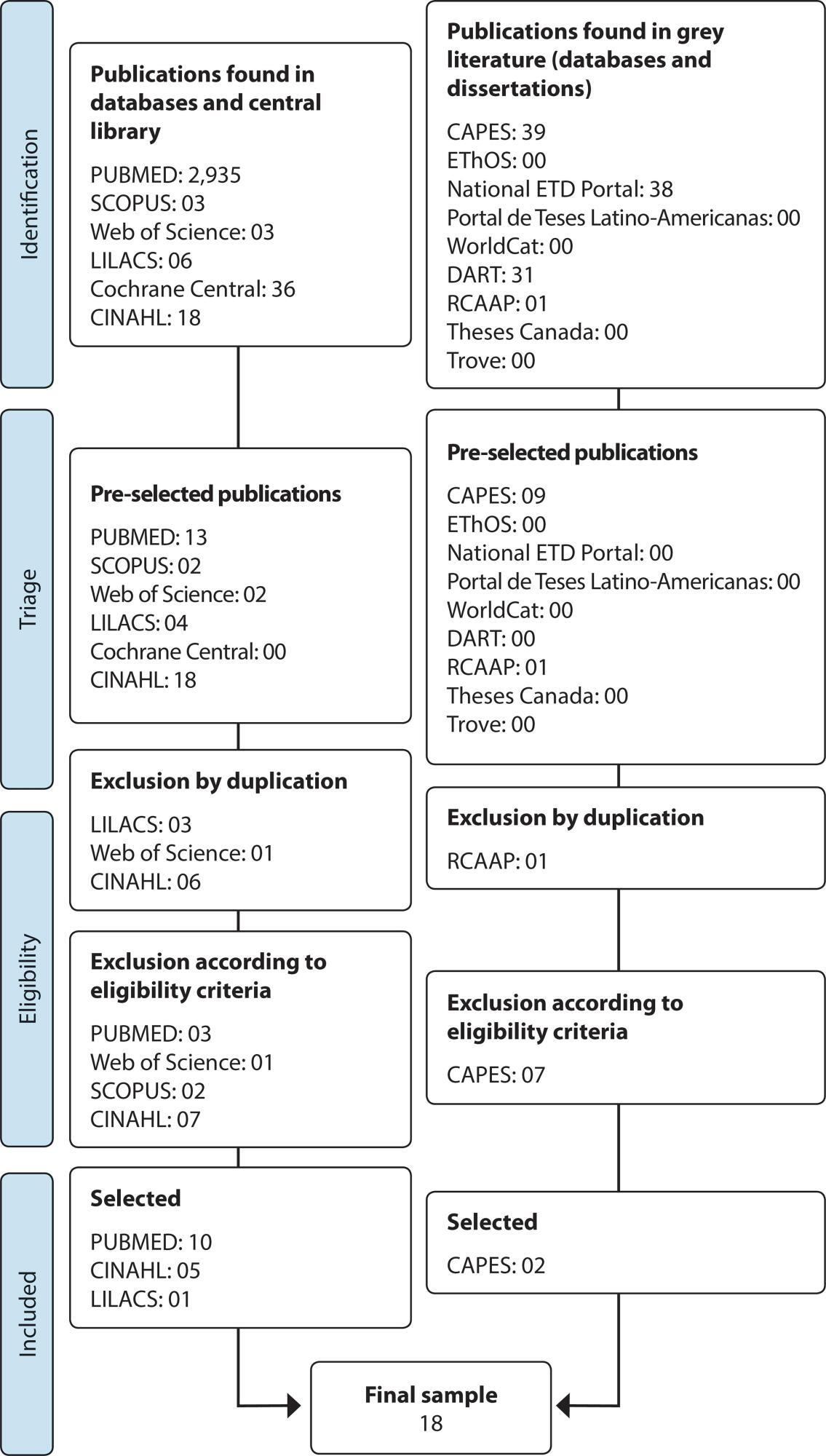
-
REFLECTION
Training and work process in Multiprofessional Residency in Health as innovative strategy
Revista Brasileira de Enfermagem. 2020;73(6):e20190635
09-07-2020
Abstract
REFLECTIONTraining and work process in Multiprofessional Residency in Health as innovative strategy
Revista Brasileira de Enfermagem. 2020;73(6):e20190635
09-07-2020DOI 10.1590/0034-7167-2019-0635
Views0ABSTRACT
Objectives: To
reflect about education in health and work process on three programs of multiprofessional residency in Florianópolis/SC.
Method:
Reflexive study about Multiprofessional Residency Health Programs of Florianópolis.
Results:
Multiprofessional Residency characterizes training health professionals through service education. Developing these professionals’ specialization with assignments that promote professional exercise and magnifies multiprofessional work at the same time, for excellency in unabridged healthcare.
Final Considerations:
Multiprofessional Residency Programs make interdisciplinary education, sharing knowledge between residents and other professionals stimulating development of innovation skills.
Keywords:Euducation, GraduateHealth PersonneInternship and ResidencyInterprofessional RelationsProfessional PracticeSee more -
ORIGINAL ARTICLE
Understanding the dramatic therapeutic play session: a contribution to pediatric nursing
Revista Brasileira de Enfermagem. 2020;73(4):e20180812
06-08-2020
Abstract
ORIGINAL ARTICLEUnderstanding the dramatic therapeutic play session: a contribution to pediatric nursing
Revista Brasileira de Enfermagem. 2020;73(4):e20180812
06-08-2020DOI 10.1590/0034-7167-2018-0812
Views0See moreABSTRACT
Objectives:
to understand how the dramatic therapeutic play session occurs within the care of hospitalized children.
Methods:
qualitative multiple case study, using theoretical references, such as symbolic interactionism and Vygotsky’s theory of symbolic play. Twenty play sessions performed with six children from 3 to 10 years old were analyzed, each corresponding to one case.
Results:
these sessions demonstrated that a dramatic therapeutic play session is a process of four interdependent and complementary steps: bonding, exploring, dramatizing, and play cessation. They also revealed the imaginary situations externalized by the child, the importance of the exploration step for which they manage the imaginary situation and catharsis, and how her higher psychological faculties are articulated during this process.
Final Considerations:
the results contribute to the understanding of the conduct and analysis of the dramatic therapeutic play session, reinforcing the importance of its use in pediatric nursing care practice.
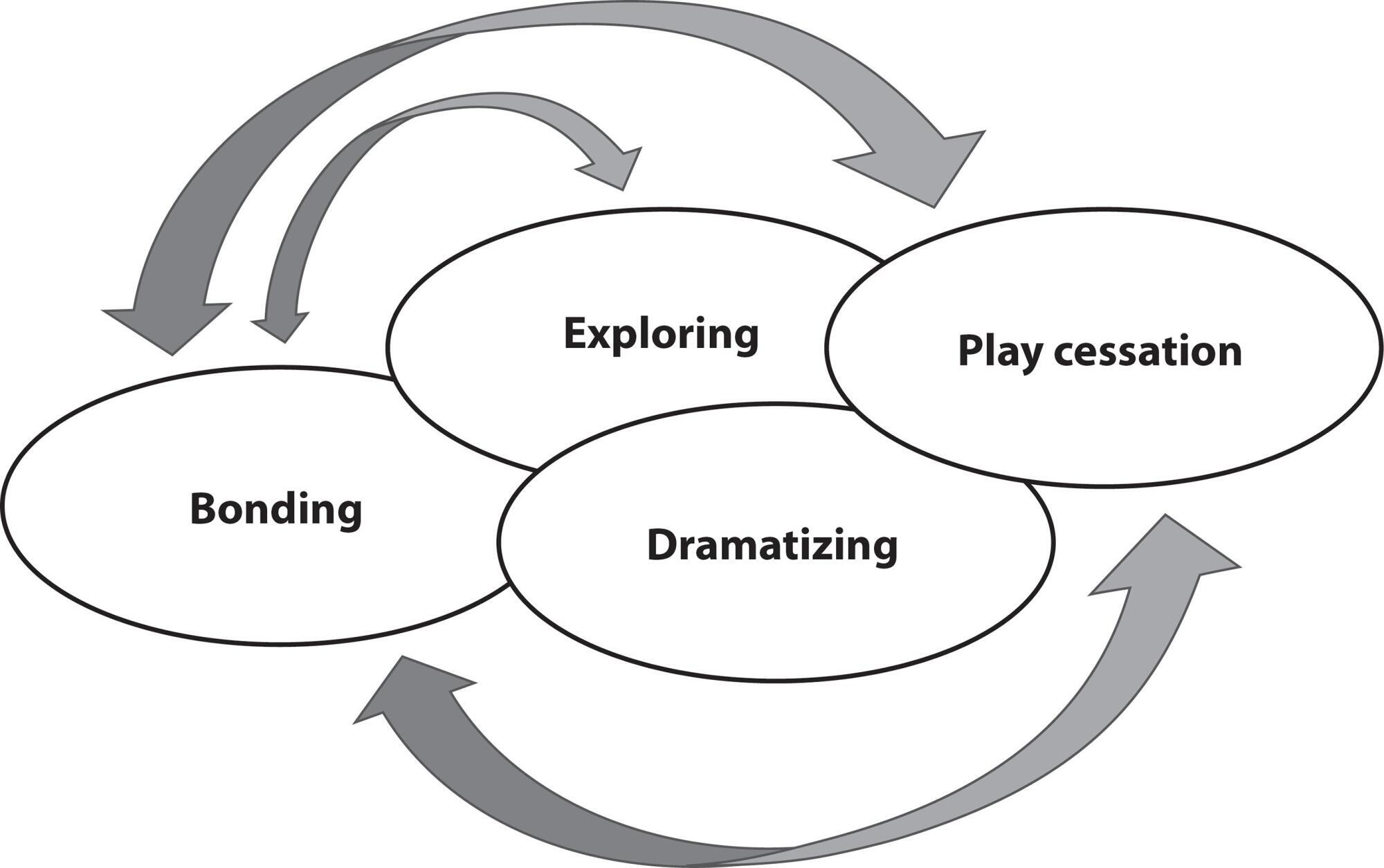
-
ORIGINAL ARTICLE
Common mental disorders in nursing students of the professionalizing cycle
Revista Brasileira de Enfermagem. 2020;73(1):e20180154
02-10-2020
Abstract
ORIGINAL ARTICLECommon mental disorders in nursing students of the professionalizing cycle
Revista Brasileira de Enfermagem. 2020;73(1):e20180154
02-10-2020DOI 10.1590/0034-7167-2018-0154
Views0See moreABSTRACT
Objectives:
to verify the suspicion of common mental disorders in nursing students of the professionalizing cycle and the association with sociodemographic features.
Method:
cross-sectional study with a sample of 85 students from a public university in the state of Rio de Janeiro (RJ) who responded to the Self-Report Questionnaire-20 and sociodemographic questions.
Results:
the suspicion prevalence of common mental disorders (CMD) in the sample was 55.3% and it was identified the association with the consumption of alcohol. Of the most frequent SRQ-20 complaints, 95.3% reported “feeling nervous, tense or worried”, 72.9% “having difficulty making decisions”, 60% “sleeping poorly” and 37.6% “having lost interest by things “.
Conclusion:
high prevalence of CMD in the sample and the association with the consumption of alcohol requires preventive and therapeutic actions among the students that minimize the possibility of severe mental disorders related to the consumption of alcohol and other drugs.
Search
Search in:
Nuvem de Tags
Aged (144) Atenção Primária à Saúde (239) COVID-19 (104) Cuidados de Enfermagem (269) Educação em Enfermagem (151) Educação em Saúde (139) Enfermagem (930) Estudos de Validação (131) Health Education (144) Idoso (208) Mental Health (149) Nursing (987) Nursing Care (306) Patient Safety (151) Primary Health Care (284) Qualidade de Vida (104) Quality of Life (106) Saúde Mental (145) Segurança do Paciente (150) Validation Studies (108)




